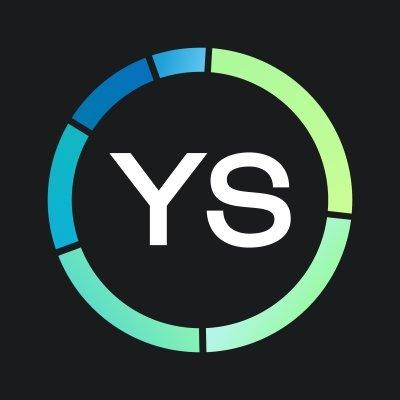Buy shares in vacation rental properties
Invest in private market alternatives
Investments
$100
Fundhomes sets its minimum investment threshold at $100, with shares available at $10.
Moderate Risk
3/5
Investing in Fundhomes carries risks such as potential loss of capital, market fluctuations, and regulatory changes affecting profitability. Investments are generally illiquid with a long-term exit strategy, and early withdrawal may result in penalties. A secondary market to improve liquidity is under consideration but not guaranteed.
Moderate Risk
3/5
Yieldstreet investments, focused on high-yield, specialty lending, carry inherent risks higher than traditional investments, primarily due to the potential for borrower default.
Minimum Liquidity
1/5
Fundhomes offers liquidity options including automatic share sales when properties are sold (5-10 years), a secondary market for selling shares to other investors, and a buyback program, with potential early sale penalties within the first year.
Minimum Liquidity
1/5
Yieldstreet's investments are generally less liquid, meaning they cannot be quickly sold for cash. These private market alternatives often require longer holding periods.
Receive new reviews from Fintorial
Moderate Return
11.36 %
Investors in Fundhomes can expect cash dividends from rental income, projected at a hypothetical rate of 6.62% per year, and property appreciation, estimated at 4.74% per year, upon sale within 5-10 years. This totals a hypothetical annual return of 11.36%.
Moderate Return
9.6 %
The expected net annualized return (IRR) for investors on Yieldstreet is 9.6%.
Long-term Investment
5-10 years
The investment time horizon at Fundhomes is typically 5 to 10 years, focusing on long-term gains from rental income and property appreciation.
Short-term Investment
6+ months
Yieldstreet's investments span time horizons from as brief as 6 months to as long as 5 years.
Who can invest
United States
To invest in Fundhomes, one must be a U.S. Citizen or a resident of the U.S. with a valid Social Security Number.
Who can invest
United States
Yieldstreet is open to U.S. persons with a valid TIN, U.S. bank account, and U.S. mailing address. Non-accredited investors can access the Alternative Income Fund, while single asset investments require accredited investor status verification.
Moderate Volatility
3/5
Fundhomes' vacation rental properties face real estate market volatility, with valuations influenced by economic shifts, interest rates, and regulatory changes.
Moderate Volatility
3/5
Assets on Yieldstreet, being alternative investments, often show different volatility compared to traditional markets, potentially offering less correlation with broad market swings.
Regulation and audits
SEC Regulated
Fundhomes utilizes Regulation A for public offerings, enabling investors to buy shares in Series LLCs that each own a vacation rental property. This approach grants investors partial ownership in a property, with all details outlined in SEC-filed offering circulars.
Regulation and audits
SEC Regulated
Yieldstreet is regulated and undergoes regular audits for compliance. Its partnership with Synapse Brokerage LLC, an SEC-registered broker-dealer and FINRA and SIPC member, ensures adherence to strict financial regulations.
Insurance
Yes
Fundhomes insures its properties against physical damage, but this doesn't cover market risks or regulatory changes affecting property values. Insurance limits may also not match property market values.
Insurance
Yes
Funds in the Yieldstreet Wallet are insured up to $250,000 by the FDIC, with deposits between $250,001 and $1 million spread across multiple FDIC-insured banks for extended coverage.
Payouts
Dividends
Investors in Fundhomes receive quarterly dividends derived from the net rental income of vacation rental properties, after deducting operational expenses. These dividends reflect a portion of the property's profitability but are not guaranteed and can fluctuate based on occupancy rates and market conditions.
Payouts
Dividends
Yieldstreet offers varied dividend or interest payment structures: fixed income investments provide monthly payments at a target yield, diversified portfolios offer quarterly target yields, and art investments yield returns upon sale, all subject to specific terms and potential annualized net returns.
Withdrawals
Investors in Fundhomes can receive their investment back when the property is sold, usually within 5-10 years, or by selling their shares earlier on a secondary market, depending on demand.
Withdrawals
Investors on Yieldstreet receive distributions directly into their Yieldstreet Wallet and can withdraw these funds to their bank account as desired.
Extra Fees
Yes
Fundhomes earns through fees for property and asset management. This includes handling vacation rental operations like maintenance and guest services, as well as overseeing investment strategies and performance.
Extra Fees
Yes
Yieldstreet's fees include a range from 0% to 2.5% annual management fees, structured notes incur a 1.25% annual management fee plus a $150 annual fund expense, the Yieldstreet Alternative Income Fund charges a 1.0% annual management fee and up to a 0.5% annual administrative expense.
Taxes
Tax Form
Fundhomes provides K-1 Tax Forms for each investment property, detailing investors' share of income, deductions, and credits. Typically, these forms are issued by March 15th each year, with an IRS extension deadline of September 15th if needed.
Taxes
Tax Form
Yieldstreet issues either a K-1 or 1099 form for tax purposes, based on the legal structure of the investment, with details provided on the offering page and in downloadable documents when new offerings are launched.

